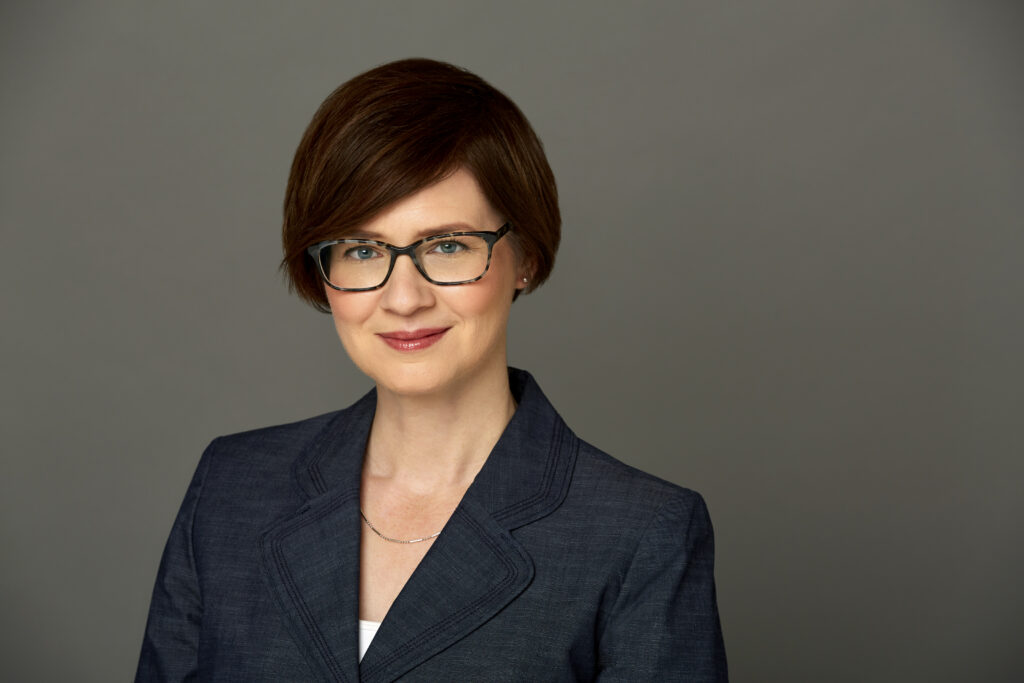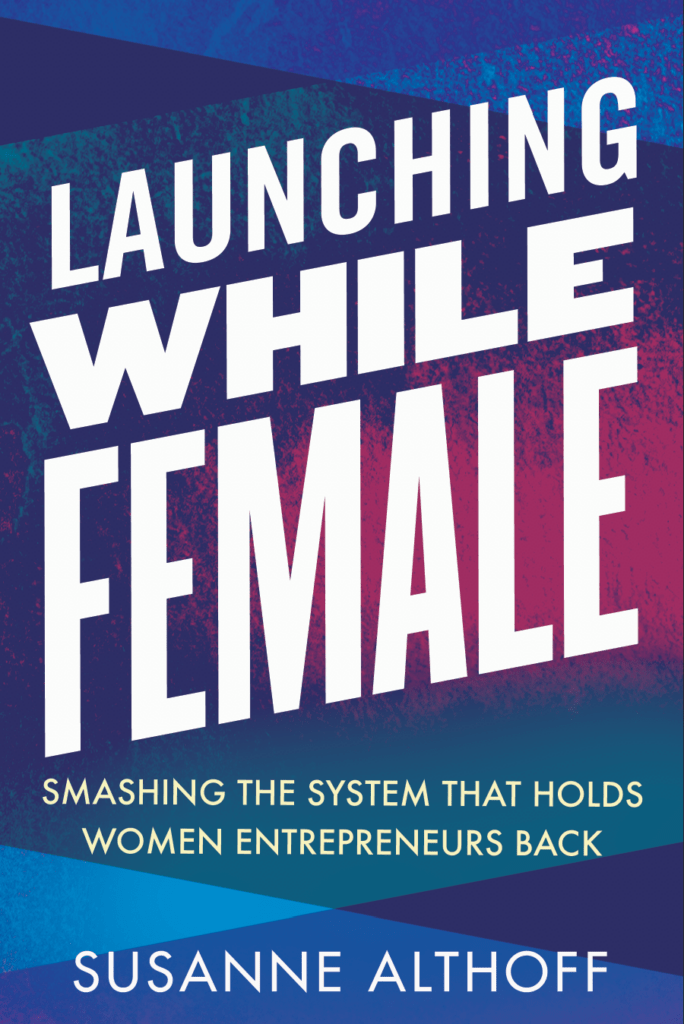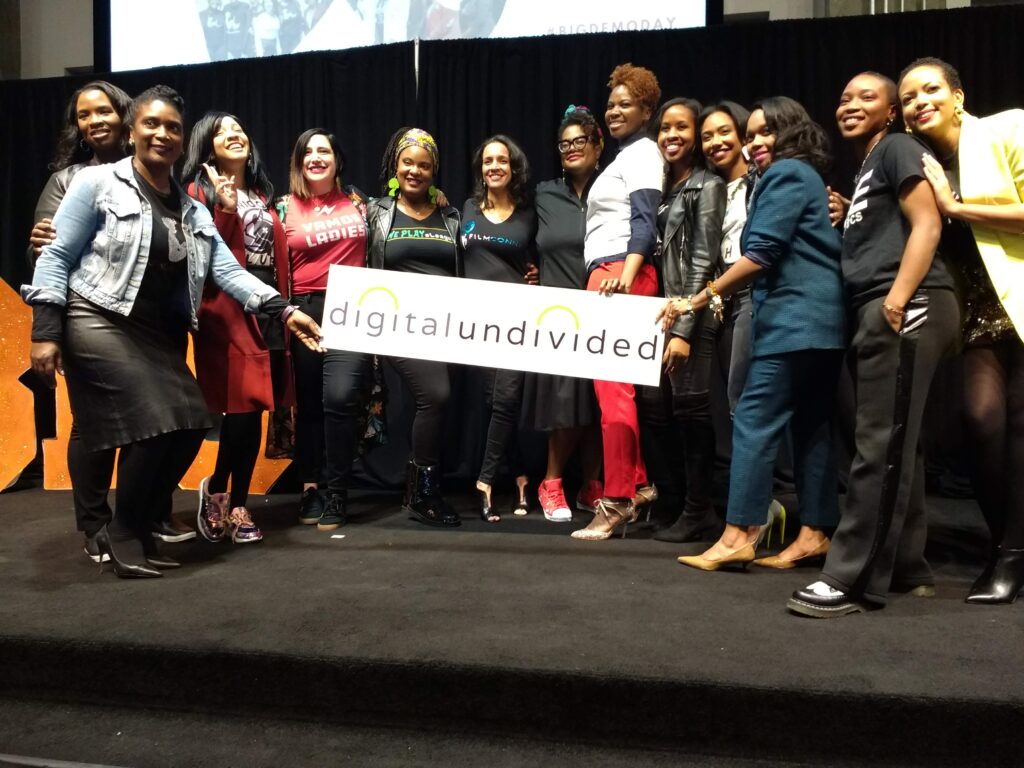Althoff’s Book Examines How Women Entrepreneurs Are Held Back
By David Ertischek ’01
In her new book, Susanne Althoff takes readers from Colonial times to today to explain why and how women entrepreneurs have been held back for centuries.
“I write about the Colonial times doctrine, coverture, that did not recognize women signing contracts and women owning businesses,” said Althoff, a Writing, Literature and Publishing assistant professor. “When a woman married, they would lose their identity. That’s why they changed their names after getting married.”
Fast forward and the structures existing today in the entrepreneurial system are still influenced by centuries of women and non-binary people being held back. Althoff’s book Launching While Female: Smashing the System that Holds Women Entrepreneurs Back, takes a microscope to the obstacles that prevent women from starting their own ventures, and what can be done to help them.

When Althoff was the editor-in-chief of the Boston Globe Magazine, she had experience with leading entrepreneurial projects. Everything that encapsulated the entrepreneurial process excited her: conceiving new ideas, finding a market, creating a product, and a prototype. After a 22-year career as a magazine editor she transitioned to teaching publishing at Emerson.
“I knew I wanted to emphasize publishing entrepreneurship. It’s such an important model,” said Althoff. “I began mentoring Emerson students working on their own startups, informally and through Emerson Launch. It turned out that all the Emerson students were female, and the stories they were telling me matched the stories I was reading about how woman entrepreneurs, or gender expansive people, face societal structural hurdles in their entrepreneurial path.”
Althoff spoke to more than 100 women and nonbinary entrepreneurs in all industries across the country for her book that was published October 27 by Beacon Press.
The Investment Gap
One of the biggest obstacles addressed in the book is how and why women entrepreneurs lack funding.
“Women startups receive less than 3 percent of venture capital investments,” said Althoff. “The numbers are even lower for entrepreneurs who are Black, indigenous, and people of color. Research has shown the more access you have to startup capital, the more you can grow, and the more people you can hire. There are many benefits to having startup capital. In the U.S., too many people don’t have access to this capital.”

On average, women and women of color who apply for bank loans pay more interest and have to put up more collateral, said Althoff. A lot of entrepreneurial projects are self-funded, and the racial wealth gap becomes a factor. White families have more wealth than families of color. The gender pay gap also plays a huge role, as women usually earn less money.
“Of all the people I interviewed, some entrepreneurs feel this is [something] unique happening to them and their ideas aren’t good enough, or they didn’t pitch appropriately,” said Althoff. “But when they learn the stats about funding they say, ‘Ah, something is bigger here.’ A lot of people talk about a lack of confidence, and by reading other stories that people have faced and overcome these obstacles.”
There’s also a lack of mentors and role models.
“Over and over again, they struggle to find enough mentors, particularly who share their gender or race. And research backs this up, that women have fewer mentors than men,” said Althoff. “Many mentors are men because they dominate executive roles, are business professors and CEOs. The #MeToo Movement has had a chilling effect. For some men, they have been reluctant to mentor women because they feel that relationship will be looked at in an unfavorable light.”
Then there’s the “Mini Me Syndrome,” in which mentors typically look for protégés who share their gender or race. Meaning if it’s a white male, he’ll want to mentor someone who reminds him of himself when he was young.
Case Studies
Serial entrepreneur Allison Clift-Jennings provided incredible insight into the entrepreneurial funding path. Clift-Jennings is currently working on the eighth startup that she’s cofounded or helped to launch. She is transgender, and transitioned at the end of 2016, so most of her startup experience came when she was perceived as a white, heterosexual, cisgender man.
“This has given Allison a very unique perspective, because she has seen how investors approach entrepreneurs, whether they are perceived as a man or perceived as a woman,” said Althoff. “When she was [perceived as] a man, she felt there was a meritocracy — that the best ideas and people who worked hard would be the people who found success. She realized it’s not the case. That the starting line can be different for people. A starting line for a Black, queer woman is different than a white male on the entrepreneurial path.”

And despite outstanding credentials in their desired entrepreneurial industry, their expertise is questioned. Farrah Allen, founder and CEO of The Labz, is an entrepreneur in Atlanta working to use blockchain technology for music editors to document their copyright. She participated in an incubator program for Black and Latinx entrepreneurs to understand the environment they’re entering.
“She talked about how her experience is often facing lots of questions. Investors ask her repeatedly how does she know about blockchain,” said Althoff. “She has impeccable IT capabilities. She worked for a decade in IT management consulting. They were warned they’d need extra time trying to prove that they know what they’re talking about and have expertise for startup.
“Farrah told me she’s not looking for special treatment. She just wants to be treated as an entrepreneur with a good business idea. She doesn’t want to be treated as a Black woman entrepreneur,” said Althoff.
Althoff was surprised by the lack of confidence of many people she interviewed. The assumption is that entrepreneurs are self-assured risk-takers. Some of it was internal, and some of it was from hearing things like, ‘Why don’t you just get a job’ or ‘I don’t think you’re suited for this.’
“I interviewed one woman in the space industry. She helps produce engines for rockets. She was giving the keynote speech at a conference, and was trying to get into the conference. But a security guard said she couldn’t come in there because it was a space conference. You’re going on stage to give the keynote and then told you don’t belong here,” said Althoff.
Products Left on the Table
From an economic point of view, our country is limiting itself by not supporting female entrepreneurs. Research estimated that if women launched as many high-growth companies as men, there would be 15 million additional jobs in the U.S. in two years, said Althoff.
That also means that many products that could be helpful and make money are also not being made. Althoff highlighted how much she saw a female entrepreneurial idea that solved a problem for a woman that male entrepreneurs don’t consider. One entrepreneur built a jewelry charm that includes a panic button to alert your emergency contacts and 911.
“She’s spoken to male investors who say, ‘I don’t see why this is needed, I feel safe.’,” said Althoff. “Every woman knows the feeling of not feeling safe. Sometimes you need to experience the problem to see what products and services are missing, and then launch that company.
“We’re missing out on pursuing new businesses. That jewelry charm, of course I’d want that, and how can you not see the need for that?” said Althoff.
The newest obstacle to women entrepreneurs is the pandemic, which is seemingly causing America’s first female recession.
“From job losses, lowered wages, loss of investment in companies, childcare burdens – most of this is being felt by women in the workforce,” said Althoff. “Research is really early, but it appears investment in women startups is dropping because of the pandemic.”
Althoff also provides a road map for a more inclusive and economically successful future. She said one example is that, if you have a choice between companies, consider buying from women-founded companies.
“You can shop your values and supporting women entrepreneurs is one way.” said Althoff.
Governments have also pledged to spend contracting dollars with women founded companies.
Althoff said student loan relief is also needed, as research has shown that if someone has student debt, they are less likely to pursue an entrepreneurial venture.
“Black women have the most student debt in this country. Women have more student debt then men, and take longer to pay back their student debt because of the gender funding gap,” said Althoff. “This would free up, especially … Black women, to launch more companies because they have the most student debt.”
“One of the things that all of us can do is to make entrepreneurship more inclusive and equitable, and why this is important to us is what I lay out in the book. It is important to everyone in America who is interested in entrepreneurship to have a fair shot at it,” said Althoff.
There will be a WLP Faculty Book Celebration on Monday, November 2, 6-7:30 pm EST with four WLP faculty discussing their latest fiction and nonfiction books: Susanne Althoff, Bill Beuttler, Alden Jones, and Jessica Treadway. For more information please visit Facebook or Eventbrite. Registration is required by the end of the day on Sunday, November 1, and a Zoom link will be sent to registrants on the morning of the event.

Categories